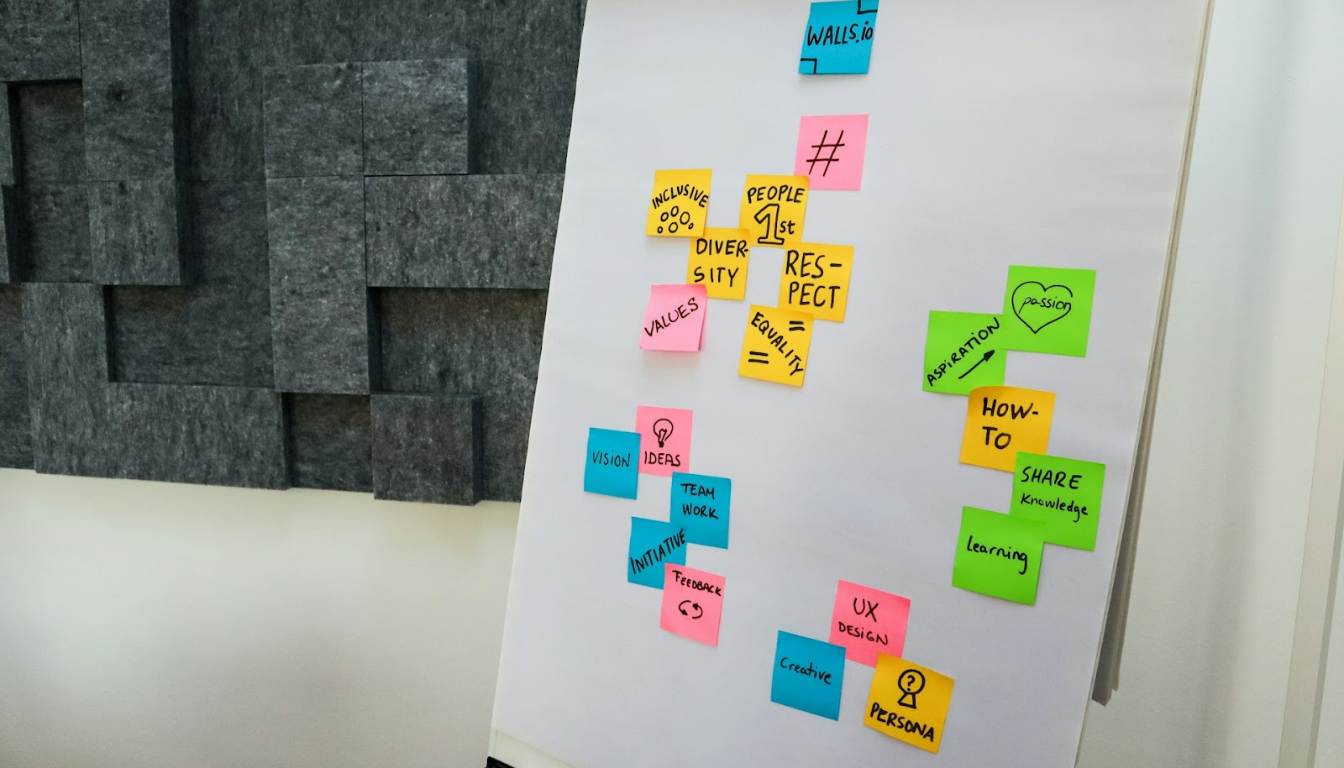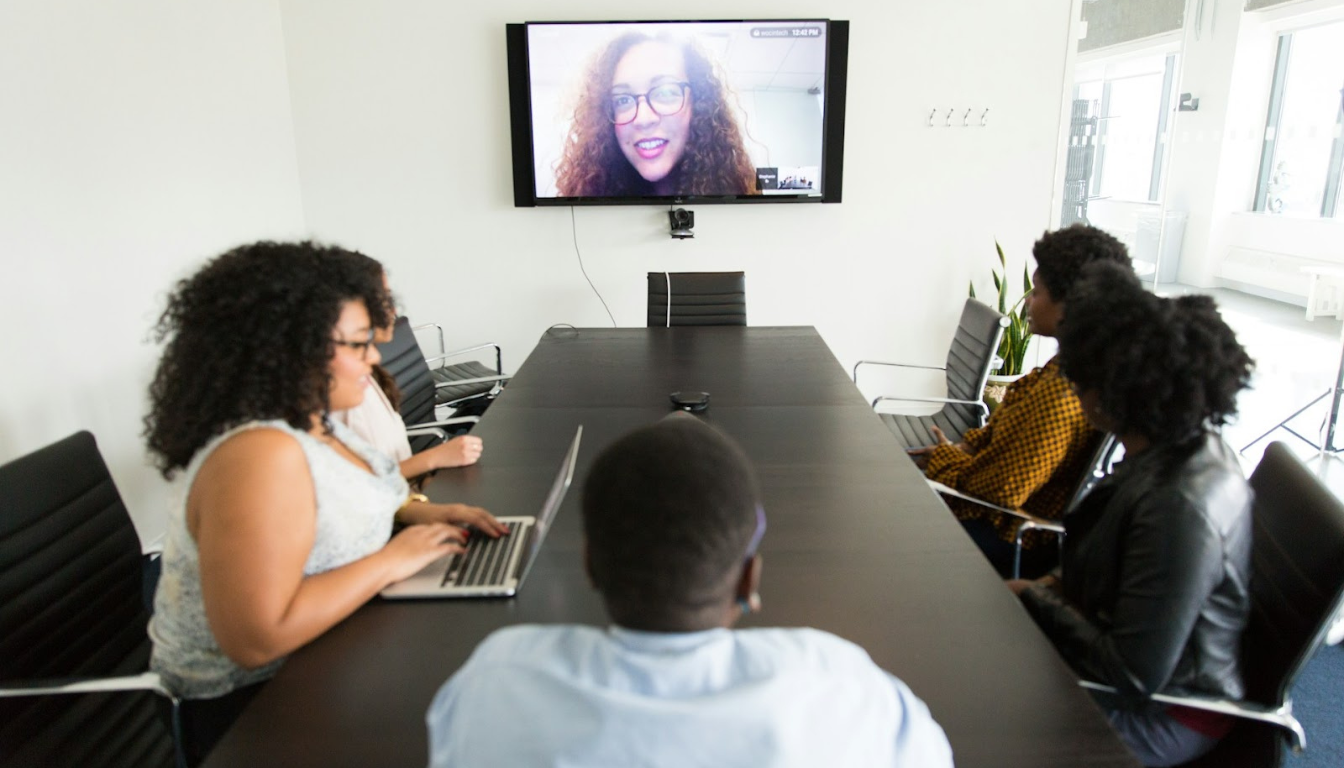Mastering the Art of Building Remote Teams: Proven Strategies for Success

Building remote teams is crucial for businesses looking to leverage global talent and offer flexible working environments. This article provides proven strategies to help you navigate the challenges and benefits of remote team management. Expect insights on fostering culture, effective communication, hiring practices, and leveraging technology to ensure your remote team succeeds.
Key Takeaways
- A strong remote work culture is essential for employee engagement, satisfaction, and overall team alignment, which requires transparency, trust, and clear communication.
- Key challenges in remote teams, such as communication barriers, isolation, and work-life balance, can be addressed through intentional collaboration, regular interactions, and proactive employer support.
- Effective hiring practices and structured onboarding are crucial for building successful remote teams, focusing on assessing independence, promoting inclusivity, and facilitating integration into the company culture.
Understanding Remote Work Culture

Remote work culture is the backbone of any successful remote team. It defines an organization’s values, goals, and mission, providing a shared understanding that keeps everyone aligned. A nurturing remote culture promotes connection and allows people to bring their best selves to work. This sense of belonging is essential for remote employees who might otherwise feel disconnected from their colleagues and the company’s purpose.
Building a strong remote work culture requires intentional efforts from leadership, HR, and employees. Transparency, trust, and clear communication are critical elements in this process. For instance, being intentional about company culture helps maintain the intended vision and build a reputation that attracts top talent. Moreover, fostering a welcoming company culture that offers growth opportunities can significantly enhance employee engagement and satisfaction.
However, establishing this culture remotely comes with its challenges. The lack of face-to-face interactions can make it difficult to align on company goals and maintain a sense of connection. Continuous feedback and intentional moments of connection are vital to overcoming these hurdles and ensuring that the remote work culture remains strong and vibrant.
Key Challenges in Building Remote Teams
Building remote teams comes with its unique set of challenges. Communication barriers, feelings of isolation, and maintaining a healthy work-life balance are among the most common issues faced by remote workers. These challenges, if not addressed, can lead to decreased employee satisfaction, burnout, and ultimately, higher turnover rates.
Intentional collaboration and regular team meetings are crucial to overcoming these challenges. By understanding and addressing these key issues, you can create a remote work environment that promotes happiness, productivity, hard work, and a strong sense of purpose among your team members.
Communication Barriers
Effective communication is the lifeline of any remote team. Without face-to-face interactions, remote workers often struggle with conveying and understanding messages clearly. Setting up clear communication rules can help establish expectations and facilitate effective communication within the team. Key strategies include:
- Setting up clear communication rules to establish expectations
- Conducting regular one-on-one check-ins
- Holding video calls to foster engagement and build trust among team members.
Feedback channels and appropriate conflict resolution methods are also vital to address issues in communication and enhance team dynamics. Utilizing asynchronous communication tools can further enhance flexibility, allowing team members to respond at times that suit them without the pressure of immediate replies.
These strategies help ensure that everyone makes sense on the same page and works towards common business goals with the same information.
Isolation and Loneliness
Feelings of isolation are a major challenge in building a remote team culture. Remote workers often experience loneliness due to the lack of casual interactions and physical distance from their colleagues. This sense of disconnection can significantly impact employee morale and productivity, making them feel isolated.
To combat these feelings, intentional strategies for connection are essential. Regular informal interactions and team-building activities can promote social interaction and help remote team members strengthen team bonds and feel more connected.
Fostering a sense of belonging is crucial for employee well-being and ensuring that team members feel valued and included in the company’s culture.
Work-Life Balance
Maintaining a balance between work and personal life is crucial for the happiness and productivity of remote employees. Establishing a culture that encourages a healthy work-life balance can significantly enhance employee satisfaction and prevent burnout. Proactive employer support in setting work-life boundaries is essential to prevent remote workers from feeling overwhelmed.
Encouraging remote workers to engage in family activities, hobbies, and other passions helps maintain this balance and supports overall well-being. Remote-first leaders and team managers must prioritize team well-being to ensure that employees who work remotely remain motivated and productive.
Effective Hiring Practices for Remote Teams

A thoughtful and structured hiring process is crucial for acquiring the right talent for remote teams. When hiring remotely, it’s important to assess candidates for their ability to work independently without direct supervision. Avoiding aspirational candidates who may not be suited for remote work, such as recent graduates, can help in building a more effective and reliable team for future hires.
Competitive compensation packages that are in line with local and global standards can attract the best talent. Additionally, building a diverse applicant pool by seeking talent in developing nations and underrepresented groups can enhance the inclusivity and effectiveness of remote teams.
Remote-First Mindset
Adopting a remote-first recruitment approach is a smart idea for companies looking to access a global talent pool. Companies like Zapier have successfully implemented this strategy to build diverse and inclusive remote teams. This approach focuses on prioritizing remote work and adjusting meeting schedules to accommodate various time zones, promoting inclusivity and participation from all team members.
By embracing a remote-first mindset, remote working companies can tap into a wider range of new skills and experiences, ultimately strengthening their remote work culture, team dynamics, and becoming a remote company.
Onboarding New Remote Employees
Effective onboarding for remote new hires is vital for integrating them into the company culture and building relationships. The onboarding process should introduce new employees to the company’s values, mission, and work style, ensuring they feel welcomed and supported. Successful onboarding involves several key components, including:
- Role clarity
- Social integration
- Knowledge of company culture
- A sense of ownership in the work
Regular check-ins and invitations to relevant meetings can help new remote employees feel more connected and engaged. Providing a comprehensive employee handbook that covers asynchronous work, meetings, inclusion, diversity, and employee benefits can further support their transition into the remote workplace.
Building Strong Team Bonds Remotely

Fostering strong relationships within remote teams is essential for promoting employee engagement and productivity. In-person gatherings, such as corporate retreats and quarterly offsites, can significantly enhance team cohesion and trust among remote workers. However, when in-person meetings are not feasible, virtual team-building activities and regular team meetings can serve as effective alternatives.
Organizing offsites quarterly can help maintain team alignment and rejuvenate team dynamics by breaking the routine. These strategies ensure that remote team members feel connected and aligned with the company’s culture and goals.
Virtual Team-Building Activities
Engaging in virtual team-building activities is essential for enhancing team cohesion and strengthening engagement among remote workers. Activities like virtual escape rooms require participants to solve puzzles collaboratively under time constraints, promoting teamwork and camaraderie. Structured icebreaker activities can also ease initial awkwardness and foster connections among team members.
Overall, these activities promote a sense of belonging and increase engagement, which is crucial in a remote work environment. Regular participation in such activities can help remote teams stay connected and maintain strong bonds, providing many benefits.
Regular Team Meetings
Regular team meetings are vital for maintaining team dynamics and ensuring everyone is aligned with the company’s goals. Essential meetings for remote teams include weekly meetings and one-on-one meetings to ensure personal connections and address any issues. Rotating meeting times and opting for asynchronous communication when feasible can enhance participation across different time zones.
These meetings help keep everyone on the same page and foster a sense of unity and purpose within the remote team, ultimately contributing to a strong remote working culture.
Leveraging Technology for Remote Teams

Investing in proper communication tools is crucial for maintaining clarity and connection in remote teams. Organizations must implement a unified communication solution to streamline interactions and prevent misunderstandings. A structured communication approach is essential for supporting remote work and ensuring that everyone is on the same page.
Utilizing modern remote work technologies can enhance team cohesion and productivity, making it easier for remote team members to collaborate effectively. These technologies play a pivotal role in fostering a strong remote work culture and keeping the team connected.
Asynchronous Communication Tools
Asynchronous communication is key for flexible and distraction-free work in remote environments. Converting some team communications to asynchronous formats can enhance meeting efficiency and reduce scheduling conflicts. This approach allows team members to respond at times that suit them, reducing the pressure for immediate replies.
Recommended tools for asynchronous communication include Notion, GitLab, Loom, and Slack. Managers in remote workplaces should set an example, respect boundaries, and meet regularly to effectively implement asynchronous communication.
Video Conferencing Software
Video conferencing software is essential for maintaining clear communication and collaboration among remote team members. Choosing the right video call conferencing software can significantly enhance team productivity by improving communication efficiency and reducing misunderstandings. Popular video conferencing tools like Zoom, Microsoft Teams, and Google Meet offer features such as screen sharing, recording options, and integration with other tools, catering to different needs.
These right tools facilitate real-time interactions, ensuring that remote team members can collaborate effectively and stay connected, thus contributing to a strong remote work culture.
Promoting Employee Engagement and Wellbeing
Promoting employee engagement and wellbeing is essential for maintaining a productive and motivated remote team. Encouraging mental health support and recognizing achievements can prevent burnout and maintain morale. Activities like wellbeing challenges, mental health insurance, and additional mental health days can significantly support remote employee wellbeing
Leaders and team leaders can promote employee wellbeing through well-structured programs and clear communication for employees working in remote work culture. Regular engagement surveys can help identify strengths and weaknesses in remote work culture, allowing for continuous improvement.
By prioritizing employee engagement and wellbeing, companies can foster a great company culture that supports a healthy work-life balance, high employee morale, and a positive employee experience.
Recognition and Rewards
Recognition and rewards are key components of a strong remote work culture. Focusing on a remote-first work culture drives employee engagement and productivity. In a remote setting, appreciation helps employees understand their performance and feel valued. Incorporating feedback from remote workers is crucial for future engagement strategies.
Recognizing team accomplishments and including remote workers in virtual celebrations can enhance employee happiness and motivation. Using rewards in addition to recognition can engage a broader range of employees effectively. Thoughtful rewards, even inexpensive ones, can foster healthy relationships and improve overall happiness.
Professional Development Opportunities
Offering professional development opportunities is essential to enhance remote employees’ skills and support their career growth. The benefits of professional development include engagement, improved retention, career growth, and skill development. Examples of professional development activities for remote teams include workshops, training sessions, and mentorship programs.
Mentorship programs are particularly effective in enhancing career growth and providing necessary support as remote employees navigate their professional journeys. Employers should be proactive in helping remote employees find a healthy work/life balance to enhance overall productivity and satisfaction.
Measuring and Improving Remote Work Culture
Measuring and improving remote work culture is crucial for ensuring its effectiveness. Key approaches include:
- Engaging in continuous professional development, which is linked to higher retention rates among remote workers.
- Regularly assessing employee engagement and turnover rates to gain insights into the effectiveness of remote work culture.
- Using anonymous surveys to encourage remote employees to share honest feedback about their experiences and concerns.
A strong remote culture contributes to reduced employee turnover and higher productivity levels. By continuously measuring and improving remote work culture, companies can ensure a positive culture and productive remote workplace, fostering a strong remote company culture.
Employee Surveys and Feedback
Employee surveys and feedback are essential tools for understanding what works and what doesn’t in the remote work culture. Surveys should focus on employee satisfaction and perceived support to gather valuable insights for cultural enhancement. Utilizing structured feedback sessions can create predictability and encourage continuous improvement among remote teams.
Most companies find that regularly collecting and acting on employee feedback helps maintain a good workplace culture and high employee morale. This approach ensures that remote employees feel heard and valued, contributing to a strong remote work culture.
Analyzing Engagement Metrics
Tracking engagement metrics helps organizations evaluate the success of remote work culture initiatives. Continuous feedback loops foster an ongoing process of adaptive culture, enabling companies to respond effectively to employee needs.
By analyzing these metrics, companies can make informed decisions to measure employee engagement and maintain a positive workplace culture.
Planning In-Person Gatherings

In-person gatherings are essential for reinforcing team culture and relationships among remote teams. If in-person gatherings are not possible, creating a virtual retreat or offsite can serve as an effective alternative. These gatherings provide opportunities for deeper team bonding and improved collaboration outside the usual work environment.
Organizing offsites quarterly can help maintain team alignment and rejuvenate team dynamics by breaking the routine. These strategies ensure that remote team members feel connected and aligned with the company’s culture and goals.
Corporate Retreats
Corporate retreats provide opportunities for team members to connect and cultivate stronger relationships outside of the regular work environment. Extra bonding time and teamwork opportunities are major benefits of larger company offsites for remote teams. When planning successful offsite events, consider selecting locations that foster collaboration and ensure a blend of structured activities and free time.
By investing in corporate retreats, companies can significantly enhance team cohesion and trust among remote workers, contributing to a strong remote work culture.
Quarterly Offsites
Quarterly offsites are essential gatherings that reinforce the connections among remote teams. These gatherings provide a platform for team members to engage in face-to-face interactions, enhancing team cohesion and alignment. Successful offsite planning involves clear objectives, a well-structured agenda, and activities that encourage teamwork and collaboration. Organizations increasingly turn to specialized platforms—such as those provided by companies like Offsite—to streamline the planning and execution of these events, ensuring they are both meaningful and logistically sound. Overall, quarterly offsites help in maintaining a strong remote team culture and ensure that everyone stays aligned with the company’s goals.
Summary
Building and maintaining a successful remote team requires intentional efforts in fostering a strong remote work culture. From effective hiring practices and onboarding processes to leveraging technology and promoting employee engagement, each strategy plays a crucial role in ensuring a productive and motivated remote workforce. By addressing key challenges and continuously improving remote work culture, companies can create a thriving remote workplace that supports both employee wellbeing and business goals. As you implement these strategies, remember that the journey to mastering remote team building is ongoing, but with dedication and the right approach, success is within reach.
FAQs
- What are the key challenges in building remote teams?
Building remote teams faces key challenges such as communication barriers, feelings of isolation, and the difficulty of maintaining a healthy work-life balance. Addressing these issues is crucial for fostering a productive team environment.
- How can companies promote employee engagement in remote teams?
To effectively promote employee engagement in remote teams, companies should recognize achievements, provide professional development opportunities, and regularly conduct engagement surveys. This approach fosters a supportive environment that keeps employees connected and motivated.
- What are some effective virtual team-building activities?
Incorporating virtual escape rooms, structured icebreaker activities, and regular informal interactions can significantly enhance team cohesion in a virtual setting. These activities foster communication and strengthen relationships among team members.
- How important are in-person gatherings for remote teams?
In-person gatherings are crucial for strengthening team culture and fostering relationships among remote team members. They provide opportunities for collaboration and bonding that virtual interactions alone cannot achieve.
You may also like
Unique spaces for your next offsite
Find distinctive venues for your upcoming corporate retreat.
Stay Updated with Our Insights
Get exclusive content and valuable updates directly to you.







